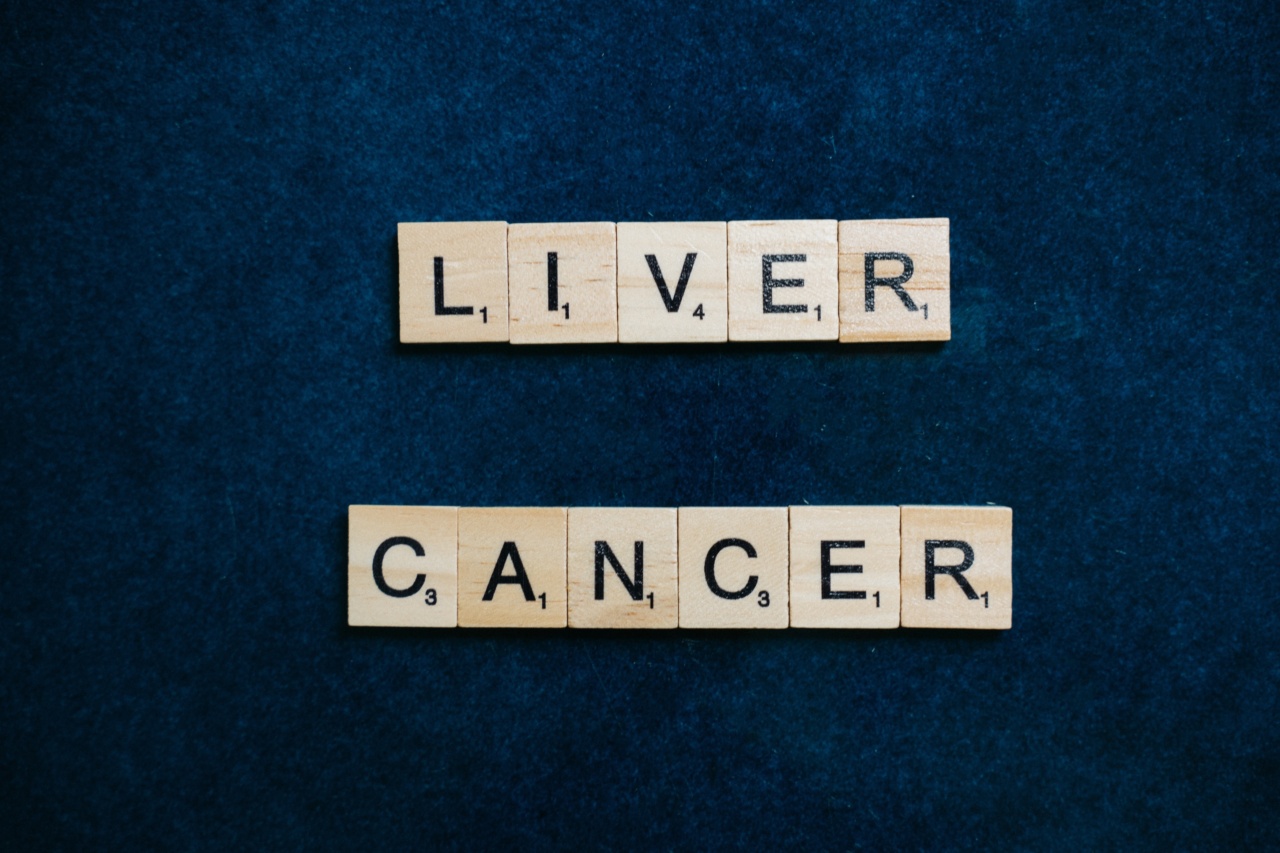The liver is one of the largest organs in the body and performs several crucial functions such as filtering the blood, storing vitamins and minerals, and metabolizing drugs and toxins.
However, the liver is also vulnerable to developing cancer, which is a potentially life-threatening disease.
What is liver cancer?
Liver cancer, also known as hepatocellular carcinoma (HCC), is a type of cancer that develops in the cells of the liver.
There are two main types of liver cancer: primary liver cancer, which originates in the liver, and secondary liver cancer, which spreads to the liver from other parts of the body.
What are the risk factors for liver cancer?
There are several factors that increase the risk of developing liver cancer. These include:.
- Hepatitis B or C infection: Chronic infection with hepatitis B or C virus can cause liver damage and increase the risk of liver cancer.
- Cirrhosis: Cirrhosis is a condition that occurs when the liver is damaged and scarred, which can increase the risk of liver cancer.
- Alcohol consumption: Drinking excessive amounts of alcohol can cause liver damage and increase the risk of liver cancer.
- Obesity: Obesity can increase the risk of liver cancer, especially in people with non-alcoholic fatty liver disease.
- Family history: Having a close relative who has had liver cancer can increase the risk of developing liver cancer.
What are the symptoms of liver cancer?
Early stages of liver cancer often do not cause any symptoms, which is why it is important to be screened regularly if you are at risk. As the cancer grows, the following symptoms may occur:.
- Abdominal pain or discomfort
- Jaundice (yellowing of the skin and eyes)
- Weight loss
- Fatigue
- Nausea and vomiting
- Swelling in the abdomen
How is liver cancer diagnosed?
Liver cancer can be diagnosed through various tests and procedures, which may include:.
- Blood tests: Blood tests can detect elevated levels of certain liver enzymes, which may indicate liver damage or cancer.
- Imaging tests: Imaging tests such as ultrasound, CT scan, or MRI can produce images of the liver and detect any abnormalities.
- Biopsy: A biopsy involves taking a small sample of liver tissue and examining it under a microscope for signs of cancer.
How is liver cancer treated?
Treatment for liver cancer depends on the stage of the cancer and the patient’s overall health. Treatment options may include:.
- Surgery: Surgery may be an option to remove the cancerous portion of the liver. In some cases, a liver transplant may be necessary.
- Radiation therapy: Radiation therapy uses high-energy radiation to kill cancer cells.
- Chemotherapy: Chemotherapy uses drugs to kill cancer cells.
- Targeted therapy: Targeted therapy uses drugs that target specific proteins or other molecules that are involved in the growth and spread of cancer cells.
Preventing liver cancer
There are several steps people can take to reduce their risk of developing liver cancer, including:.
- Getting vaccinated against hepatitis B
- Getting screened for hepatitis C and receiving treatment if necessary
- Limiting alcohol consumption
- Eating a healthy diet
- Maintaining a healthy weight
- Getting regular exercise
The link between liver cancer and other diseases
Research has suggested that there may be a link between liver cancer and other diseases, including:.
- Diabetes: People with diabetes have an increased risk of developing liver cancer.
- Non-alcoholic fatty liver disease (NAFLD): NAFLD is a condition where there is excess fat in the liver. This condition can increase the risk of developing liver cancer.
- Chronic kidney disease (CKD): CKD can cause liver damage and increase the risk of liver cancer.
- Non-alcoholic steatohepatitis (NASH): NASH is a more severe form of non-alcoholic fatty liver disease that can increase the risk of liver cancer.
Conclusion
Liver cancer is a serious disease that can have life-threatening consequences. It is important to understand the risk factors for liver cancer, get screened regularly, and take steps to reduce your risk.
By adopting a healthy lifestyle and getting regular medical check-ups, you can help prevent liver cancer and other related diseases.






























